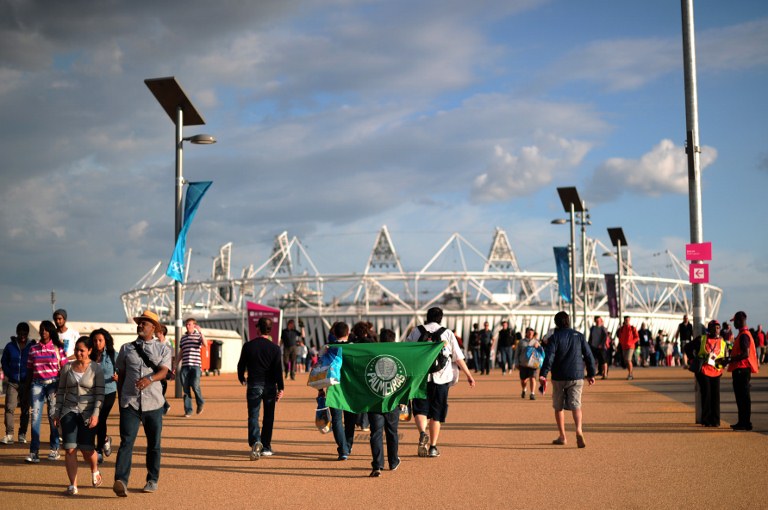SUMMARY
This is AI generated summarization, which may have errors. For context, always refer to the full article.

PARIS, France – The International Paralympic Committee (IPC) is relishing the prospect of having the Paralympics in London, with this year’s edition promising to be the biggest and most high-profile yet.
Some 4,200 athletes are scheduled to take part in the competition, which begins in the British capital on August 29 and runs until September 9, rounding off a summer of sport.
IPC president Philip Craven, though, said there was not just a desire among the public to prolong the Olympics after a successful Games, particularly for the home nation, but also to see more top-class sport.
“This will be my sixth Paralympics as president. It’s not just because I’m back in my own country but everyone is so excited,” said the 62-year-old Briton, a five-time Paralympian in wheelchair basketball and swimming.
“There’s a fantastic buzz in the air, waiting for it to kick off and people talking about it,” he told AFP in a phone interview from London.
Part of that buzz comes from the previous Games in Beijing four years ago, where China set an impressive standard to follow, he added.
“I think when (Chinese President) Hu Jintao in early 2006 declared that the Paralympics were equal to the Olympics they really were,” Craven said.
“We were very pleased with the way the Chinese took to Paralympic sport. They had programs explaining the different sports and we had great coverage there.
“But what (British host broadcaster) Channel 4 have done, they have taken a very fresh look at it, which has been exciting and ground-breaking, pushing those boundaries. Because it’s brand new, even we at times have had to catch up.”
Channel 4, whose powerful Paralympics trailer “Meet the Superhumans” has won widespread praise, are planning what they say are an “unprecedented” 150 hours of rolling coverage on multiple platforms over the 12 days of competition.
After the Olympics ended on August 12, the broadcaster even ran adverts cheekily saying: “Thanks for the warm-up.”
Greater awareness — and a desire to be part of the world’s second-biggest sports event in terms of athlete participation — has increased the Paralympics’ profile, with expectations that it will be an unprecedented sell-out.
No new sports will be introduced in London, although the Games will see the return of categories for intellectually disabled athletes in table tennis, swimming and athletics for the first time since the Sydney Games in 2000.
The categories were dropped for Athens in 2004 and Beijing four years later after revelations that many of Spain’s gold medal-winning basketball team had no physical or intellectual impairment.
Craven said the IPC had been working closely with the International Sports Federation for Persons with Intellectual Disability (INAS) to come up with improved eligibility criteria, which has been used in a number of competitions.
The IPC president said he had confidence in that system and there would be no repeat of the Sydney controversy.
Interest has also been piqued given the links between Britain and the Paralympic movement: the forerunner to the Games was held in 1948 in Stoke Mandeville, southern England, for World War II veterans with spinal injuries.
The Paralympic flame will be lit at the Stoke Mandeville stadium next Tuesday before being carried in a relay to the Olympic stadium in east London for the opening ceremony the following day.
With an increased profile and top-class competition, Craven said “the future of the movement is looking very good”, leaving room for expansion for the 2014 Winter Olympics in Sochi, Russia, and the 2016 summer Games in Rio de Janeiro, Brazil.
Two new sports are planned for Rio — para-canoe and para-triathlon (swimming, cycling/handcycling, wheelchair) — while para-snowboarding is coming in for Sochi and talks are on for introducing para-bobsleigh in Pyeongchang, South Korea, in 2018.
“Over the last 10 years, the Paralympic movement has moved from being disability sport organization to a sports organization. In doing that, we may even have redefined the concept of sport for all,” Craven added.
“We really do have a good Games in an incredible festival of sport — and people like it. You will see the sadness and excitement there will be on September 9 when the Paralympics is concluded. – Phil Hazlewood, Agence France-Presse
Add a comment
How does this make you feel?
There are no comments yet. Add your comment to start the conversation.